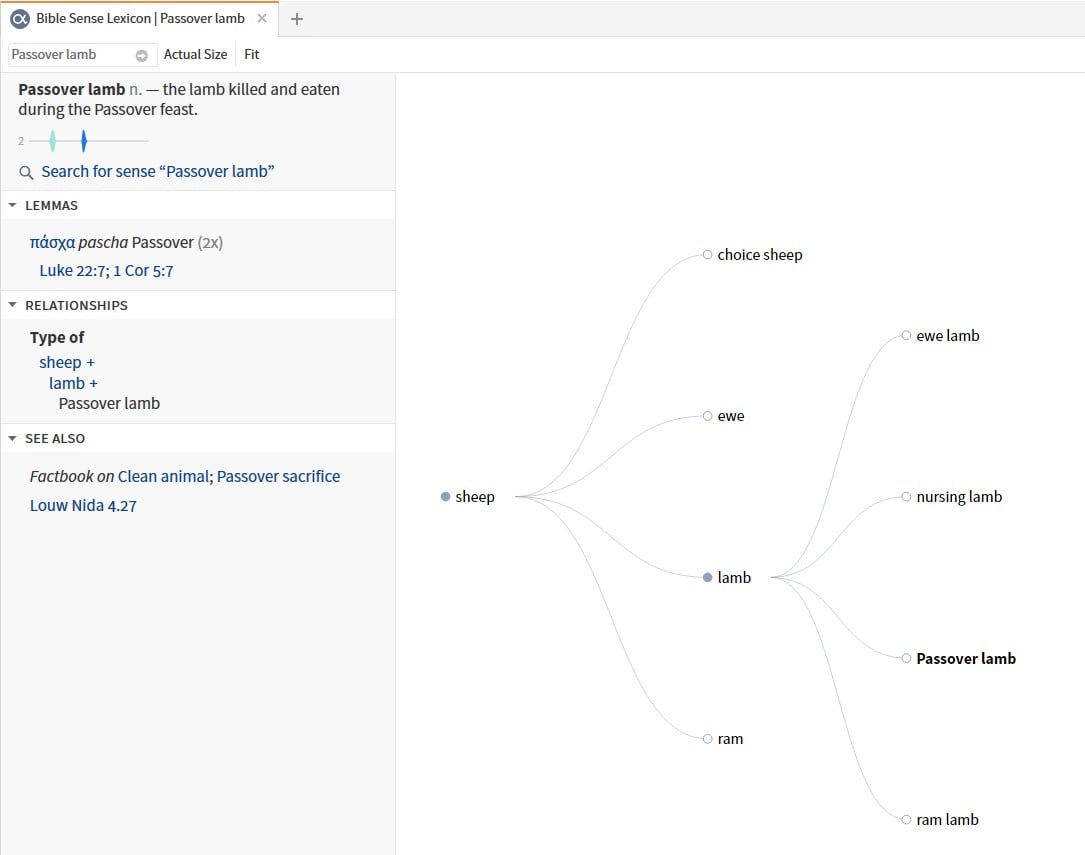I noticed in the Bible Sense Lexicon that there are two different sense entries for the animal sacrificed for the Passover: 'Passover Lamb' and 'Passover Sacrifice' (see below).


I can see that one entry is for the Greek and one is for the Hebrew, but why would that necessitate two separate entries? There are many sense entries that contain both Hebrew and Greek words, and you can search the entire bible for one sense regardless of testament or language?
Is there another difference in the sense here for the Passover animals that are sacrificed? They seem like the same thing to me. Exodus 12 says the animal is supposed to be a lamb anyway (either sheep or goat) so why the distinction between the Hebrew and Greek entries?